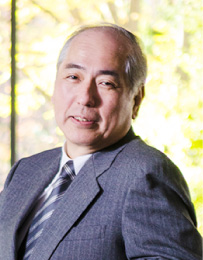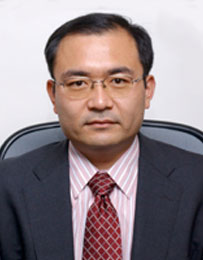- Members
- Professor
Professor
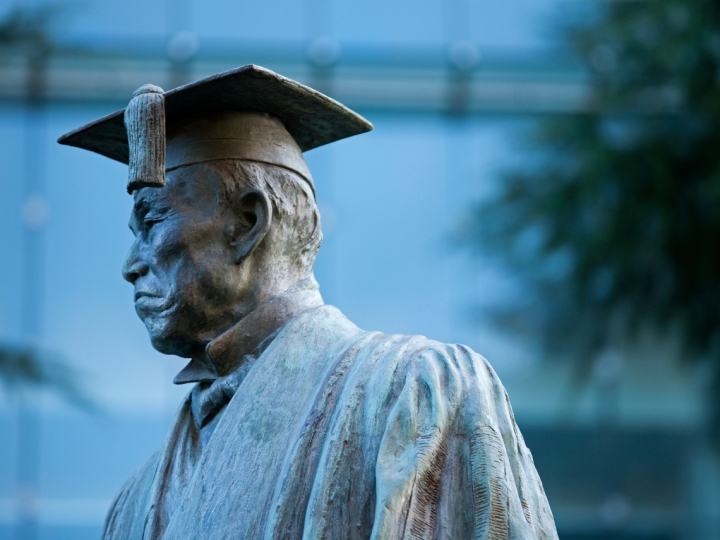
- Kenji TAKIZAWA
- Yoshihiro SHIBATA
- Tohru OZAWA
- Hideo KOZONO
- Shinichi OISHI
- Kousuke KUTO
- Takashi KUMAGAI
- Martin GUEST
- Kiyoshi SAITO
- Mitsunori TAKANO
- Hiromichi NAKAZATO
- Reika FUKUIZUMI
- Kazuya YUASA
- Hiroaki YOSHIMURA
- Yoshihiro OHNITA
- GIANNETTI Niccolo
- Kazuaki TANAKA
- Takuya TERAHARA
Kenji TAKIZAWA
Unit Leader ( AY2022 - )
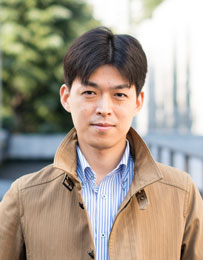 |
Affiliation, TitleDepartment of Modern Mechanical Engineering, Professor Kenji.Takizawa(AT)waseda.jp SpecialtyFluid–Structure Interaction (FSI) Problems, Computational Mechanics |
Research Interest
We have targeted a number of key technology areas of the 21st century where we expect to make a significant impact with the high-power fluid–structure interaction (FSI) modeling techniques we have been developing. These areas are biotechnology, space and energy. We recognize that in these targeted areas FSI modeling will play a crucial role in advancing the technology with reliable computational analysis, performance evaluation, correlation studies, and bringing new solutions and new designs. Our research objective is to play that role. This will require addressing even more computational challenges than the many that we have already successfully addressed. Creative development of new modeling techniques needed to address those additional challenges is also our research objective.
Yoshihiro SHIBATA
Former Unit Leader ( AY2014 - AY2021 )
Research Interest
I study the mathematical theory of the compressible, and incompressible viscous fluid flows. Recently, I proved the maximal regularity theorem for the several linear problems arising from the mathematical study of the free boundary problems for the Navier-Stokes equations describing the motion of viscous compressible, or incompressible one phase or two phase fluid flows with the help of the R boundedness for the solution operators of the resolvent problem. Moreover, I proved the local wellposedness of the free boundary problem for the one phase compressible, or incompressible viscous fluid flow. And also, showing the decay properties of solutions to the linearized problems, I proved the global wellposedness for small initial data. I also started studying the two phase problems in the case of the i ncompressible-incompressible, incompressible-compressible and compressible-compressible fluid flows with sharp interface.
Research Reports
Tohru OZAWA
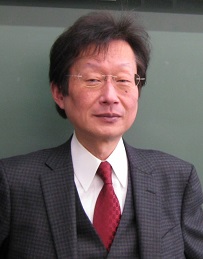 |
Affiliation, TitleDepartment of Applied Physics, Professor txozawa(AT)waseda.jp SpecialtyMathematical Physics, Nonlinear Partial Differential Equations |
Research Interest
We study nonlinear partial differential equations arising in the theory of classical fields on the basis of functional analysis and harmonic analysis.
Research Reports
Hideo KOZONO
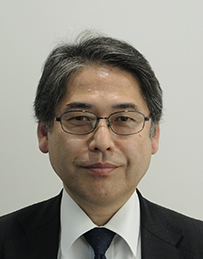 |
Affiliation, TitleDepartment of Mathematics, Professor kozono(AT)waseda.jp SpecialtyNonlinear partial differential equation |
Research Interest
My major is research on nonlinear partial differential equations arising from the fluid dynamics. The method is based on the functional analysis, the harmonic analysis and other fundamental tools in the modern mathematical analysis. In particular, I am interested in the Navier-Stokes equations describing the motion of incompressible fluids and its well-posedness such as existence, uniqueness and regularity of solution as well as its continuous dependence with respect to the initial data. The stability and asymptotic behavior in the space and time variables of solutions are also investigated. Simultaneously, I deal with various inequalities in function spaces which are useful to analysis for the nonlinear PDE.
Research Reports
Shinichi OISHI
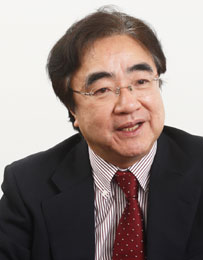 |
Affiliation, TitleDepartment of Applied Mathematics, Professor oishi(AT)waseda.jp SpecialtyNumerical analysis, Mathematical informatics, Circuit theory |
Research Interest
Verified numerical computations figure out all errors that occur in numerical calculation and derive a mathematically correct result. We have established a research field of (super) fast verification, w hich guarantees the error with almost the same speed as getting a numerical solution. Fast and high-accuracy computation methods are based on Error-free transformation that adaptively increases the accuracy of numerical computation. These computation methods open up the new field of numerical computations. My current interests are studies and educational methods for the circuit theory.
Research Reports
Kousuke KUTO
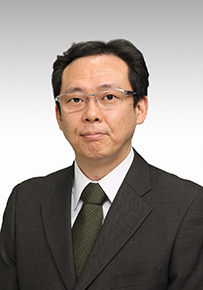 |
Affiliation, TitleDepartment of Applied Mathematics, Professor kuto(AT)waseda.jp SpecialtyNonlinear partial differential equations |
Research Interest
My research area is the nonlinear partial differential equations. Among other things, I put effort into analysis for spatiotemporal patterns and the global structure of steady-state solutions to reaction-diffusion systems arising in biological models. For example, I study the effect of nonlinear diffusion terms on the bifurcation branch of the set of steady-state solutions to the Lotka-Volterra system. By the analysis for partial differential equations arising in mathematical models, My aim of research is to derive not only the mathematical understandings for the mechanism of biological phenomena but also analytical procedures for nonlinear diffusion terms, e.g., the cross-diffusion term.
Research Reports
Takashi KUMAGAI
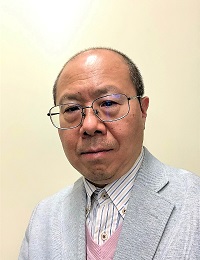 |
Affiliation, TitleDepartment of Mathematics, Professor t-kumagi(AT)waseda.jp SpecialtyProbability Theory |
Research Interest
My research area is probability theory. In particular, I have been working in the field of stochastic processes and analysis on disordered media such as fractals, and I have obtained anomalous properties of the heat transfer on them. This is a fundamental research toward understanding physical phenomena on the media. Jointly with my collaborators, I have established robust methods that are applicable to various disordered media. Moreover, these methods are used to prove anomalous heat transfer on random media such as percolation clusters at critical probability. I have also analyzed wide class of jump processes (non-local operators) and have made contributions to related areas.
Martin GUEST
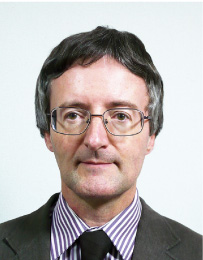 |
Affiliation, TitleDepartment of Mathematics, Professor martin(AT)waseda.jp SpecialtyIntegrable systems, differential geometry |
Research Interest
My research area is differential geometry, interpreted widely. Recently I have been focusing on problems related to quantum cohomology and integrable systems, in particular the role of harmonic maps in tt*-geometry (topological-antitopological fusion). This area began with symplectic topology (Floer cohomology and quantum cohomology), then developed into differential geometry (quantum differential equations, special geometry, pluriharmonic maps) and the theory of integrable systems (families of flat connections, integrable hierarchies). Many of the concepts and problems emerged recently from physics, but they provide challenging problems across a wide area of mathematics. My interest in this area was strongly influenced by my earlier work in algebraic and differential topology, and differential geometry. In particular I studied the topology of spaces of rational curves in homogeneous Kaehler manifolds and toric varieties, and the differential geometry of harmonic maps from surfaces to Lie groups and symmetric spaces. Loop groups and their infinite-dimensional Grassmannian models played a role in much of this work, and continue to be an essential tool in my current research.
Research Reports
Kiyoshi SAITO
Research Interest
The mathematical model of thermal fluid energy conversion system is constructed and its steady and unsteady state conditions are analyzed based on the circuit theory. With this result, optimum design and control of the actual system such as the heat pump are realized. Furthermore, unified analysis theory that can be applied to the electric, thermal fluid and mechanical systems is developed, and with this theory, the macro energy system analysis is carried out to realize optimum configuration and operation of the total energy conversion system.
Research Reports
Mitsunori TAKANO
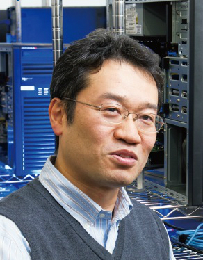 |
Affiliation, TitleDepartment of Physics, Professor mtkn(AT)waseda.jp SpecialtyBiophysics, Computational Physics |
Research Interest
If we think of a living system as an integrated circuit, what corresponds to the circuit element is a protein molecule. A protein molecule can process and transmit physical information and can exert mechanical work as a molecular machine. Protein molecules are dynamically interacting with each other, forming a biomolecular circuit in water. We are conducting large-scale simulation of a system composed of biomolecules and waters to elucidate the physical mechanism of molecular machines that have acquired ingenious functionality via evolution, utilizing the latest computer technology and powerful methods in the computational and statistical physics.
Research Reports
Hiromichi NAKAZATO
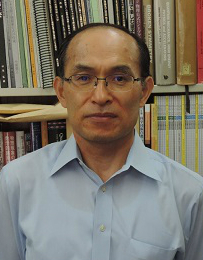 |
Affiliation, TitleDepartment of Physics, Professor hiromici(AT)waseda.jp SpecialtyFundamental issues of quantum theory |
Research Interest
Issues related to the fundamental aspects of quantum theory are studied, examples of which include quantum dynamics of open quantum systems that describes loss of quantum coherence (decoherence) and/or dissipative processes, measurement and control of quantum systems, physical quantities characterizing quantum states and their measurement, and quantum mechanical scattering processes viewed within the framework of quantum field theory.
Research Reports
Reika FUKUIZUMI
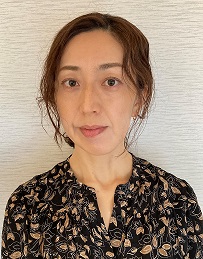 |
Affiliation, TitleDepartment of Mathematics, Professor fukuizumi(AT)waseda.jp SpecialtyNonlinear dispersive equations, stochastic partial differential equations |
Research Interest
My main research interest is stochastic partial differential equations motivated by quantum physics, and I develop rigorous theories using functional analysis, harmonic analysis, probability theory, and numerical methods.
Kazuya YUASA
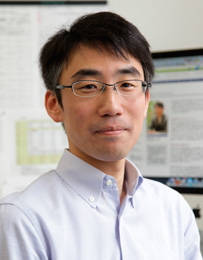 |
Affiliation, TitleDepartment of Physics, Professor yuasa(AT)waseda.jp SpecialtyQuantum Physics and Quantum Information |
Research Interest
We are conducting theoretical research on the fundamental aspects of quantum mechanics and quantum information, exploring interesting and attractive quantum worlds, and pursuing future quantum technologies.
Research Reports
Hiroaki YOSHIMURA
 |
Affiliation, TitleDepartment of Applied Mechanics and Aerospace Engineering, Professor yoshimura(AT)waseda.jp SpecialtyDynamical Systems, Geometric Mechanics, Dirac Geometry |
Research Interest
My research topics are mainly concerned with Dirac geometry and its applications to mechanics and physics. In particular, I have developed Dirac reduction for nonholonomic systems on manifolds on which Lie groups act and the associated variational structures, together with the applications to multibody systems, multiphase flows, viscous fluids with reaction and diffusions, classical field theories such as electromagnetisms, variational integrators. Furthermore, invariant manifold structures of Rayleigh-Benard convection and the restricted four body problems, stochastic variational formalisms for meso-fluids and molecular dynamics are also studied.
Research Reports
Yoshihiro OHNITA
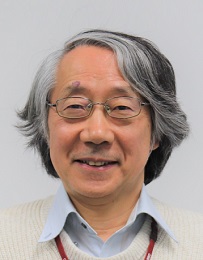 |
Affiliation, TitleGlobal Center for Science and Engineering, Professor (non-tenure-track) yohnita(AT)aoni.waseda.jp SpecialtyDifferential Geometry, Theory of Harmonic Maps |
Research Interest
Our research fields include classical and modern differential geometry, starting with Gauss and Riemann, and harmonic map theory, which is one of the most fundamental geometric variational problems.
In particular, we are conducting intensively and broadly research on symmetries, stability, and moduli spaces in geometry of curves and submanifolds and harmonic map theory. We are also interested in related other fields such as topology, complex geometry, symplectic geometry, finite and infinite dimensional Lie theory, mathematical physics, gauge theory, integrable systems, information geometry and so on.
GIANNETTI Niccolo
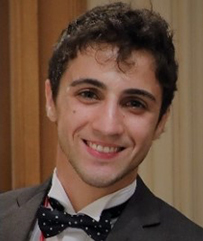 |
Affiliation, TitleAssociate professor (non-tenure-track) niccolo(AT)aoni.waseda.jp SpecialtyPhysical modelling of transport phenomena within engineering thermal systems |
Research Interest
Involved in the development of highly generalizable and accurate physical models of interfacial transport phenomena recurrent in thermal systems through the interdisciplinary effort of mathematics, physics and engineering. Targeting the development of advanced semi-theoretical models as a solid background to investigate new solutions for a rapidly changing field.
Also working on: energy storage systems; systems using natural refrigerants; sorption systems; cascade refrigeration systems; turbomachinery;
Research Reports
Kazuaki TANAKA
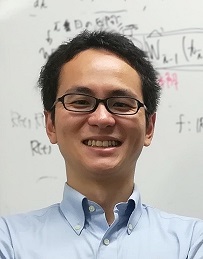 |
Affiliation, TitleGlobal Center for Science and Engineering, Associate Professor (non-tenure-track) tanaka(AT)ims.sci.waseda.ac.jp SpecialtyValidation Mathematics, Deep Learning |
Research Interest
I am engaged in research to verify the correctness of results from numerical computation using mathematics.
In recent years, I have been researching the verification of computational results obtained from deep learning, which is applied to the analysis of partial differential equations, including reaction-diffusion models.
Takuya TERAHARA
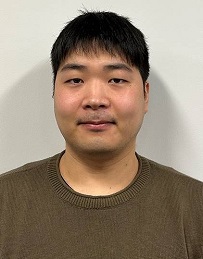 |
Affiliation, TitleGraduate school of Creative Science and Engineering, Assistant Professor takuya.terahara(AT)tafsm.org SpecialtyFluid–Structure Interaction Problems, Computational Mechanics |
Research Interest
Our work involves applications of fluid–structure interaction modeling and smooth basis functions such as B-spline and T-splines. We have focused on cardiovascular problems and parachutes for spacecraft.

